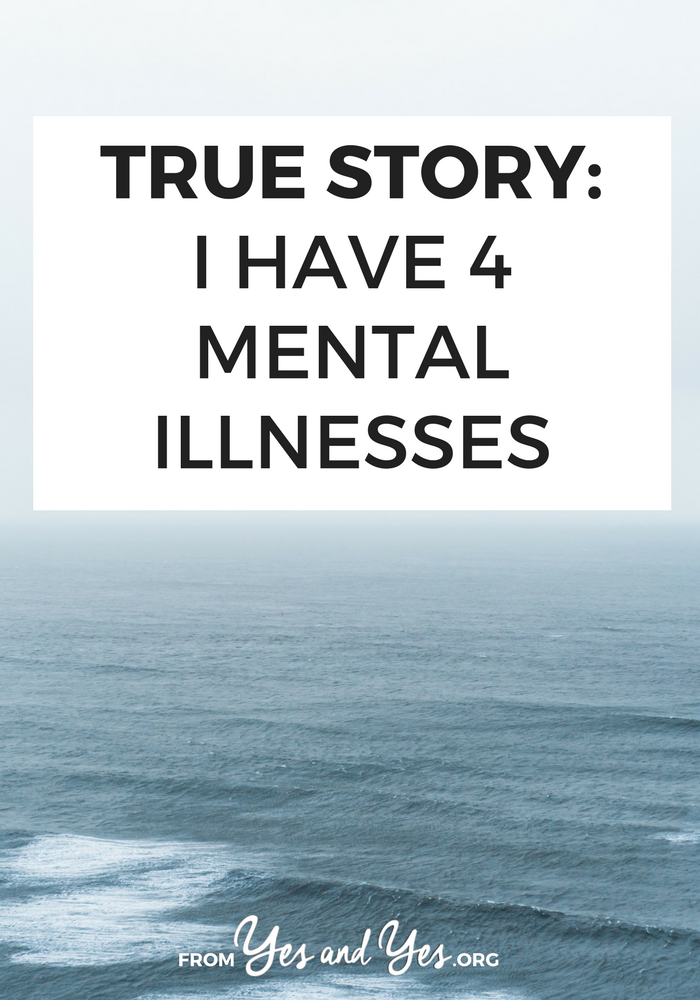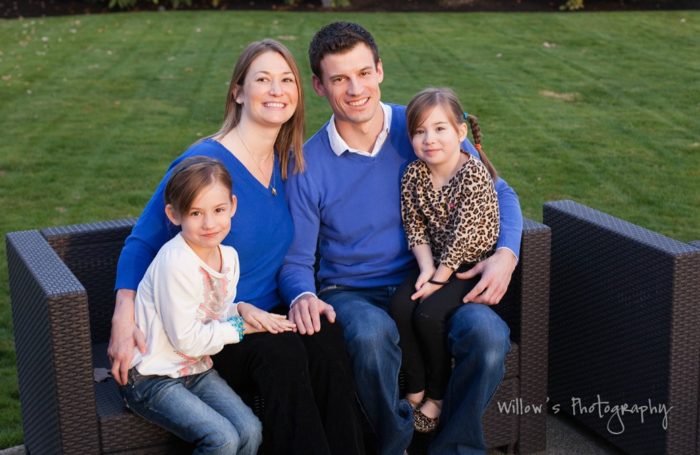
18% of Americans experience mental illness in a given year, but what would life be like if you had multiple mental illnesses? Today Topaz is sharing her story of navigating life (and thriving!) with four mental illnesses.
Tell us a bit about yourself!
My name is Topaz. I am 17 and currently a student in Singapore. I love music and the sea more than most things in life. I’m a Libra, a poet, and an introvert. I believe in lucky pennies, the power of a good mixtape, and making bright things out of darkness.
You have four mental illness diagnoses. What are they and when did you receive them?
I have major depressive disorder, generalised anxiety disorder, hyperacusis, and obsessive-compulsive disorder. (It’s a bit of a mouthful, but one gets better at rattling off the list with practise. ;))
My first diagnoses were depression and anxiety, which I received about three years ago. A few months after that came hyperacusis, and a year after hyperacusis came OCD. They were all diagnosed by different doctors—depression and anxiety by a former psychiatrist, hyperacusis by a specialised ear doctor, OCD by my current psychiatrist.
What led you to go to the doctor that first time? Was there a specific incident? Did someone in your life want you to go?
By the time I first went to the doctor, I’d been feeling deeply, terrifyingly sad for a full year. I ended up finally working up the courage to tell my parents. They did not react well—first they were sure that I was making it up, then they insisted I must simply be ungrateful for what I had. Finally they decided it was an issue with my hormone levels.
At that point they brought me to our family doctor, who took one look and insisted that I see a psychiatrist immediately.
I should add that my parents are much, much better these days in interacting with me regarding my disorders—in the beginning they were simply ignorant, and I do not blame them one bit for it. They have since done a beautiful job of educating themselves on what exactly these illnesses entail, and have become one of my greatest support systems.
How did you feel when you got those diagnoses?
Interestingly enough, I was more relieved than anything else when I received my depression diagnosis. At that point, because I had been feeling consistently horrible for a year, I knew something was wrong with me, and depression seemed like an obvious answer. It felt almost validating to have a name to stick onto what I was feeling, especially because so many people in my life had brushed it off as irrelevant.
Anxiety came at the same time as depression and was a complete shock to me—though, looking back on it now, it’s rather odd that I didn’t connect the dots, seeing as how I was having daily panic attacks by the time I was diagnosed.
Hyperacusis was… numbing, more than anything else. It is a rare illness and not always connected with mental issues, so I hadn’t even heard of it when the diagnosis came. All I knew was that I could hear much more sensitively than everyone else and it was painful in ways I did not understand (perhaps don’t even understand now). I was simply not really quite sure how to feel.
OCD was the only diagnosis that I was truly devastated by. At that point I had gone through the rounds of three diagnoses and I was exhausted, disillusioned, ready to be finished with the merry-go-round of tests and doctors and charts. It was extremely difficult to hear and adjust to the fact that I was “broken”, so to speak, in yet another way (even though I had been displaying obsessive-compulsive symptoms without the official diagnosis for some time).
Do your diagnoses feed on each other? Does one trigger the other?
Most certainly—they are intertwined in so many ways that it’s difficult to imagine one existing without the influence of the others. My ears flare up when I’m sadder than usual; the obsessions and compulsions are just a manifestation of generalized, free-floating anxiety.
Each disorder is intricately linked with the others, and their symptoms rise and fall in time with each other—it’s much more unusual to have, say, a day that is light on depression but heavy on anxiety than a day when both depression and anxiety seem amplified.
What sort of treatment are you pursuing? What have you tried that hasn’t worked?
Currently I’m in therapy and on medication for all of my disorders. It is not easy by any means; therapy is very intensive, and medication is a bit of a moving target in terms of dosages and side effects and trying to find the exact right combination that works at the optimal level for my specific illnesses.
There was much trial and error especially towards the beginning—my symptoms were and are quite atypical, so they did not necessarily improve much with traditional combinations of medications or traditional forms of therapy—but I am happy with the place I’ve come to after three years of working towards a strong relationship with both my therapist and psychiatrist.
Do your diagnoses affect your daily life? If so, how?
To be honest, I don’t think I would be the same person I am today without these diagnoses. They affect me hugely in everything I do.
Beyond the predictable elements of remembering to take my medication daily and attending therapy appointments on a weekly basis, I’m constantly looking forward into situations to prevent panic attacks (due to anxiety) or sensory overload (due to hyperacusis).
On my worst days I am unable to get out of bed due to depression. I must sit and walk and speak and experience life a certain way due to OCD. Mental illness is as much a part of me as my eye color and my fondness for cheesecake.
But at the same time, among all of the sad and hard and scary parts, these illnesses have given me so many beautiful things. I’ve met incredible, kind, generous, strong people in the neurodivergent community. I’ve become more open and empathetic to the struggles of strangers.
I’ve begun to realize a fraction of the extent to which my family and friends love me, and how much they are willing to give and grow to help me feel better. I try to hold onto that.
In your opinion, what is the biggest misconception about people who have a mental illness?
That we are homogeneous in any way. Some believe that the term “mentally ill” can only be applied to murderous, delusional, chainsaw-wielding psychopaths. Others believe it can only applied to angst-ridden teenage girls crying in bathroom stalls at lunch break.
Both characterizations might be applicable to a tiny fraction of the mentally ill community—but we are diverse and flawed and vibrant and utterly gorgeous in every way we exist in this world outside of the stereotypes that others place upon us. The most dangerous misconception is, I think, that we could possibly be lumped into such reductive categories.
What tools/resources/books/websites have helped you navigate this?
So many. A very incomprehensive list: the National Alliance on Mental Illness for up-to-date education and support; Hope and Help for Your Nerves by Claire Weekes; noise machines and a set of noise-cancelling headphones for when my ears flare up.
A soft, calming playlist; Tchaikovsky’s gorgeous thoughts on depression; Things Might Go Terribly, Horribly Wrong by Kelly Wilson and Troy Dufrene; the crisis chat service IM Alive; daily long walks and bi-weekly massages to reduce anxiety; an important reminder: “I’ve got the basics covered”.
The Quiet Place and the Dawn Room. More than those singular resources, though, the community of mentally ill people and supporters over at my blog has been utterly invaluable in both educating me about illnesses I do not have and providing a support system for days when it feels like no one else could possibly understand the unique difficulties of neurodivergence.
If we know or love someone who has a mental illness, how can we best support them?
Educate yourself about the visible and invisible symptoms of their specific illness. Point them to any resources you find in your research. Listen to both their struggles and their triumphs. Notice when they’re in situations that make their symptoms flare, and commend them on how strong they’re being (even and especially when it doesn’t look like they’re trying particularly hard on the outside).
Ask them what they need and truly hear the answer. If you can, provide transportation or monetary assistance if they decide to seek outside treatment in the form of therapists, psychiatrists, and/or other professionals.
Be aware of your privilege, and do your part to combat the stigma surrounding mental illness—call out your neurotpyical friends and family members who joke about being “triggered” when they feel mildly uncomfortable, or how “OCD” they are when they organise their desks, or how they’re so “schizophrenic” when they have an unusual dream.
Above all, don’t expect for your love and support alone to cure someone. Share on X I guarantee you, it will not—but be a place they can come when they need to fall apart with no one casting judgement. It may not feel like much, but I promise it’s enough.
Thanks so much for sharing your story, Topaz. Do you guys have any questions for her?
P.S. True Story: I have Schizoaffective Disorder.












I’ve always read that certain mental illnesses go hand in hand with other mental illnesses. It seems like it in this case! I couldn’t imagine living like Topaz, but she is navigating so well. I’m glad she has the support she needs!
Charmaine Ng | Architecture & Lifestyle Blog
http://charmainenyw.com
No questions from me, just some heartfelt appreciation to Topaz for being willing to talk about her experiences. I too have an anxiety disorder (that has been diagnosed as both OCD and panic disorder) that I’ve dealt with for nearly 30 years. Seven years after being properly diagnosed I’m doing much better but it will always be a part of me in the way that Topaz describes. The more people who speak openly about their mental health challenges (and management of them), the better. I used to think I was so alone but every time I hear someone else’s story, I get a growing sense that I’m a part of a brave community of people. Thank you Topaz and Sarah for sharing this story. Consider this a virtual hug to you both!
Bipolar2. Borderline personality disorder, PTSD, ADHD.
I feel you I have 4 I am showing symptoms for a fifth though